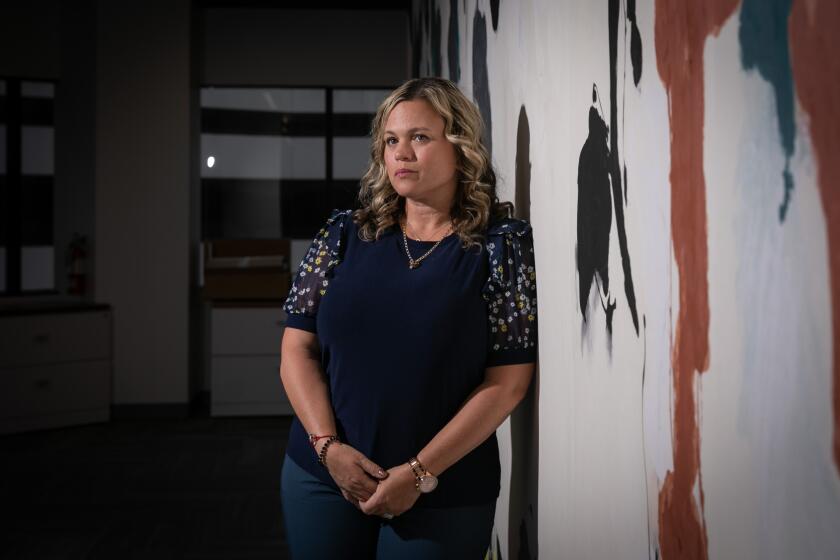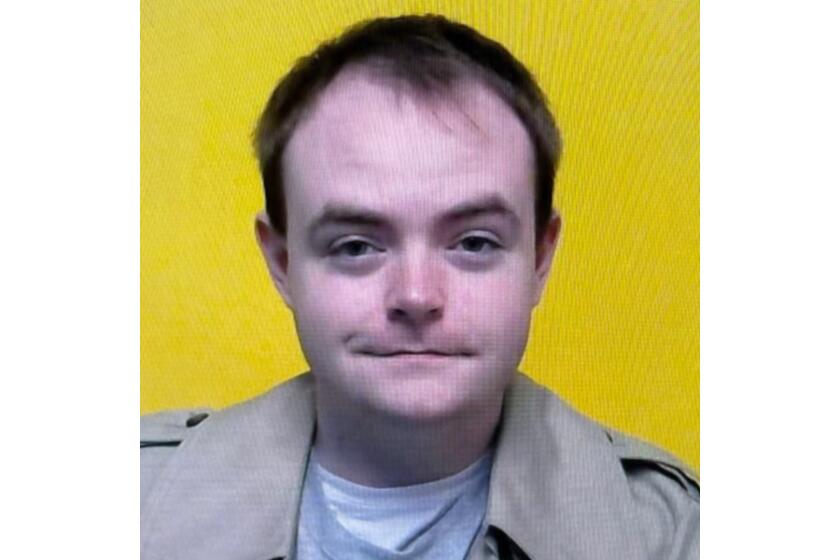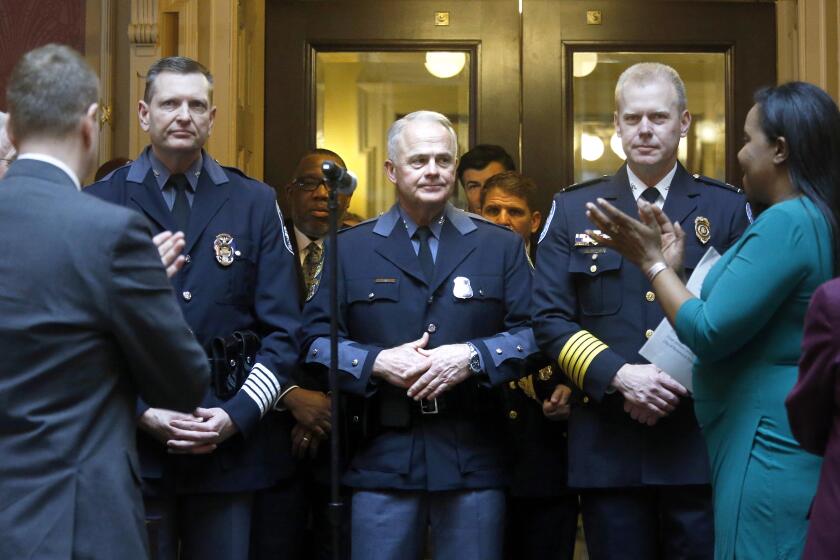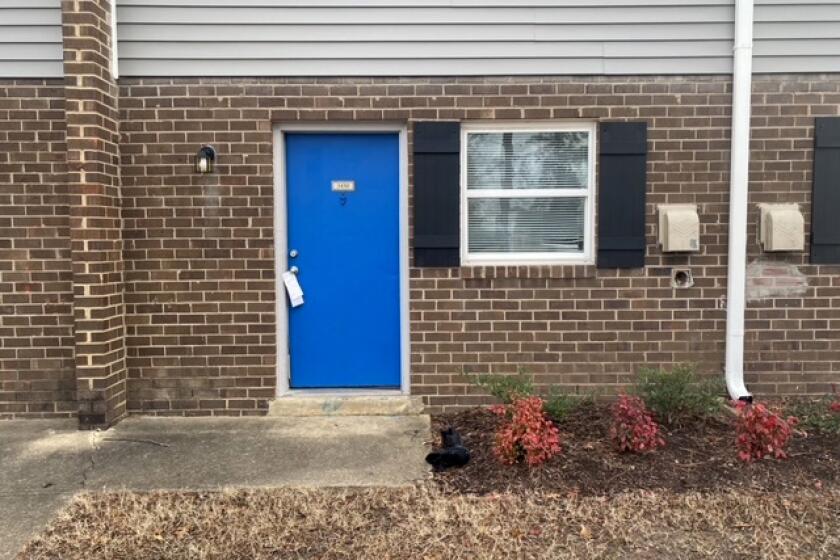‘Catfish’ cop who killed three in Riverside failed Virginia State Police mental health exam, lawyers allege

- Share via
WASHINGTON — The Virginia cop who “catfished” a Riverside 15-year-old and then drove to California late last year and killed three of her family members failed his mental health evaluation before being hired by the Virginia State Police, attorneys for the teen’s surviving family alleged in a legal notice.
Manhattan Beach-based attorney David Ring, who represents the teen’s younger sibling and that child’s legal guardian, Mychelle Blandin, made the allegations in a document sent Wednesday to Virginia officials advising them that the family plans to sue.
Austin Lee Edwards worked as a sheriff’s deputy in Virginia. Relatives of the family he killed plan to sue, arguing he never should have been hired.
Police have said that Austin Lee Edwards, 28, catfished the girl by pretending to be a 17-year-old boy online.
Edwards killed Mark Winek, 69; Sharie Winek, 65; and Brooke Winek, 38; and kidnapped the girl on Nov. 25, the day after Thanksgiving. He then drove to the Mojave Desert, where he led deputies on a chase. Authorities initially said he was killed in a shootout but later said he died of a self-inflicted gunshot from his service weapon. The girl was physically uninjured.
According to the legal notice, which was obtained by The Times, Virginia State Police officials “ordered” a mental health evaluation of Edwards after he disclosed a 2016 incident in which he visited a mental health facility. After Edwards failed the evaluation, state police “deliberately buried” the results and hired him, the family’s lawyers allege.
The Virginia State Police declined to comment.
Corinne Geller, a state police spokesperson, previously said the agency found no “indicators of concern” during its “extensive” vetting of Edwards. But reporting by The Times over the past six months has exposed Edwards’ history of mental health troubles — and evidence that the agency was aware of them.
A Virginia State Police spokesperson said last month that there were no “indicators of concern” that surfaced during Edwards’ hiring process.
Edwards told the Virginia State Police during a job interview that he went to a mental health facility in 2016. That incident, in which Edwards cut himself and threatened to kill his father, triggered two custody orders and led a judge to revoke his gun ownership rights.
Edwards’ disclosure should have prompted the agency to investigate further before hiring him as a law enforcement officer, Col. Gary Settle, the state police superintendent, acknowledged in a December letter to Virginia’s inspector general.
Austin Lee Edwards said he checked into a mental health hospital in 2016. Further inquiry might have kept him from becoming an officer, a police official said.
“Virginia completely dropped the ball,” Ring said in a statement. “There is no law enforcement agency in the country that would have hired Austin Lee Edwards, given his mental health history,” he added. “Edwards was forbidden by the courts to possess a gun. Virginia gave him a gun, a badge, and the ability to commit these heinous murders.”
Years before the Riverside killings, ‘catfish’ cop Austin Lee Edwards groomed, stalked and solicited nude pictures from a teen girl.
The legal notices sent to Virginia say that the family, which is also being advised by El Segundo-based attorney Alison Polin Saros, intends to sue the state and Washington County, whose sheriff’s office employed Edwards at the time of his death. The notices cited gross negligence in Edwards’ hiring and claimed damages of more than $100 million.
“How is it possible that not one but two Virginia law enforcement agencies not only hired a person who was automatically disqualified from carrying a gun, but then trained him in police tactics and investigations, which allowed him to gain access to the family and carry out the brutal murders,” Saros wrote in a statement.
Edwards was employed by the state police for just nine months before he resigned on Oct. 28 and joined the Washington County Sheriff’s Office as a patrol deputy on Nov. 16. He had worked at the sheriff’s office for less than two weeks when he killed the Wineks in Riverside.
Most child predators have more than one victim. Any evidence, especially technology or paper files, could aid police in learning about other victims or abusers.
More to Read
Sign up for Essential California
The most important California stories and recommendations in your inbox every morning.
You may occasionally receive promotional content from the Los Angeles Times.

















